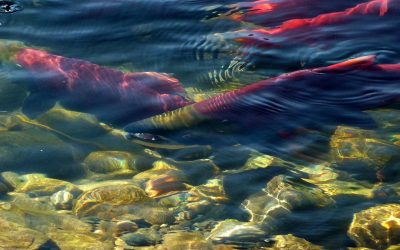A large marine heatwave would double the rate of the climate change impacts on fisheries species in the northeast Pacific by 2050, says a recently released study by researchers from the University of British Columbia and University of Bern.
In 2013, a large marine heatwave, nicknamed the ‘Blob’, occurred in the northeast Pacific Ocean. From the coast of Alaska to Baja California, the Blob had a significant impact on the marine life and fisheries in this region; an impact that lasted for several years.
The new study, released in the journal Scientific Reports, combined the latest climate, ocean and fish modelling approaches to quantify the future impacts of marine heatwaves like the Blob on fish stocks along the west coast of Canada and USA. The resulting models showed that future ‘blobs’ would exacerbate climate change impacts on these important fish stocks, causing them to decrease in biomass and generating shifts in their distribution, which, in turn, would impact the fisheries sectors in this region.

Sockeye salmon ©ArtTower/Pixabay
“Marine heatwaves similar to the Blob are going to occur more frequently and with higher intensity in the coming decades,” said Thomas Frölicher, assistant professor at the Physics Institute and Oeschger Centre for Climate Change Research of the University of Bern. “Our results underscore the need for a reduction of anthropogenic greenhouse gas emissions – the fundamental driver of ocean warming, to limit challenges from marine heatwaves on fish stocks and fisheries.”
“The COVID-19 pandemic has made us very much aware of the need to be prepared for impactful episodic events such as marine heatwaves,” said Cheung. “The Blob will return, and with climate change still taking place in the background, its impact will be even greater. Early prevention is the key – in this case that means active climate mitigation and effective adaptation.”
The paper “Marine heatwaves exacerbate climate change impacts for fisheries in the northeast Pacific” was published in Scientific Reports.
Tags: climate change, CORU, faculty, fisheries management, Research, William Cheung